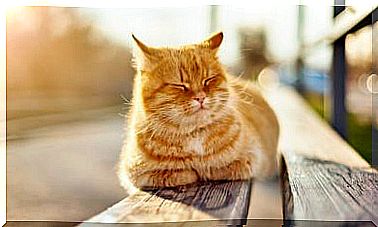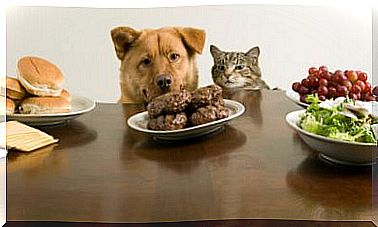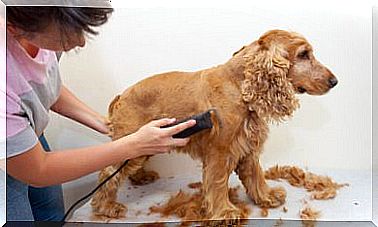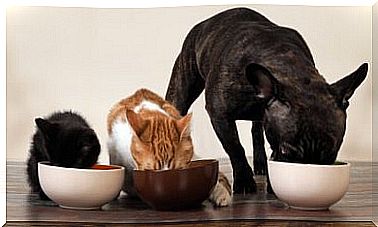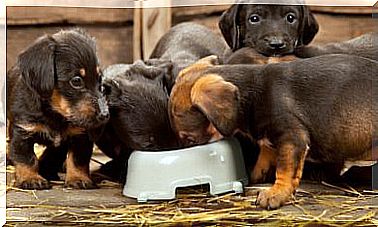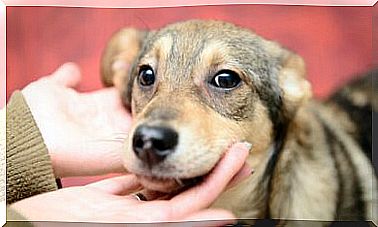Feline Infectious Peritonitis: A Disease That Can Kill Your Cat
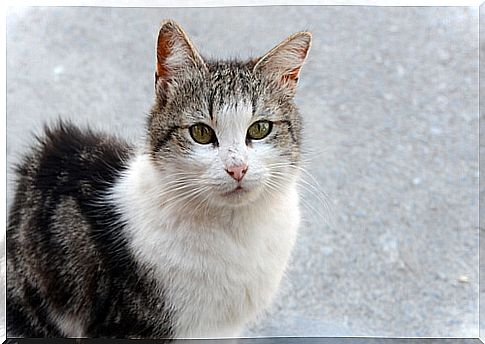
Feline Infectious Peritonitis (FIP) is a serious and complex disease that, sooner or later, causes the death of the affected animal. Although it occurs more frequently in cat colonies or in shelters and kennels, all kittens can suffer from it, especially the youngest, between 6 months and two years old, or those that have already passed a decade of life.
Feline Infectious Peritonitis: a disease of difficult diagnosis and without cure
Distributed throughout the world, Feline Infectious Peritonitis is caused by a coronavirus closely related to the Feline Enteric Coronavirus and appears to attack purebreds more frequently.
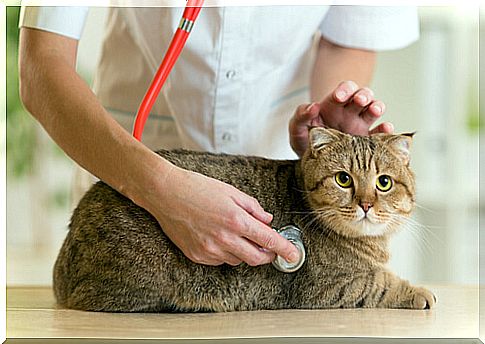
The precise diagnosis of this disease is usually difficult and in many cases it is even confirmed with the feline autopsy. There is also no effective treatment once PIF manifests itself. And while there is a vaccine, it cannot be assured with certainty that it will be effective, at least in all cats.
Given this scenario, do not panic if they tell you that your cat is infected with Feline Enteric Coronavirus. This coronavirus is found in many of these animals and, in most, all it causes is mild diarrhea.
But on rare occasions the virus seems to mutate and triggers Feline Infectious Peritonitis. This occurs with about 1 percent of cats infected with Feline Enteric Coronavirus.
How the coronavirus spreads
A cat infected with coronavirus can spread the virus through :
- Feces
- The urine.
- Oronasal secretions.
It is estimated that contagion is also possible through:
- Feeders.
- Pet beds.
- Transmission from mother to fetus.
First signs that a cat may be suffering from PIF
From the time the infection occurs, it can take from two weeks to years for the first signs that a cat suffers from Feline Infectious Peritonitis to appear.
The disease presents in three clinical forms :
- Moist, effusive or exudative.
- Dry, not effusive, or not exudative.
- Intermediate (a combination of the two above).
The first signs that a cat is suffering from PIF are nonspecific and can be confused with other conditions. For instance:
- Fever
- Lack of appetite
- Weightloss
- Lethargy
- Nasal and ocular discharge
Acute manifestation of PIF
In the so-called wet form, which is the acute manifestation of PIF, these initial signs are followed by ascites (accumulation of serous fluid in the peritoneal cavity), thinning and anemia, during a highly variable period of time among affected individuals.
Due to the storage of fluid, a painless and progressive distention occurs. A pericardial exudation and, occasionally, ocular or nervous signs can also be present, although they are quite rare in cases of wet FIP.
Unfortunately, the evolution of the disease is usually very fast, and the animal can die in days, weeks or months.
Dry form of Feline Infectious Peritonitis
When the disease manifests itself in a dry form, although there is no excess ascites fluid, they can be affected, for example :
- The uveal tract.
- The kidneys.
- The liver.
- The central nervous system.
In addition, the coat looks damaged and many cats have jaundice (a yellowish color to the eyes, nose and gums).
In non-effusive PIF, the disease can progress and remit over several months. But, invariably, it ends with the feline’s death.
Possible causes of the Coronavirus mutation
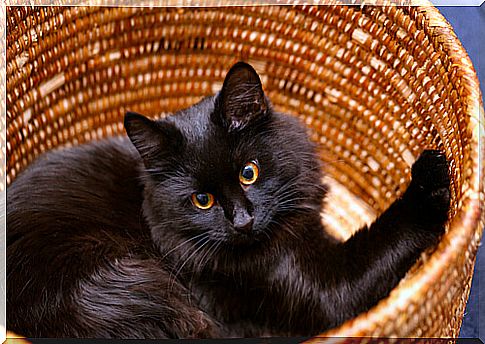
Although it is not possible to establish what factors determine that the virus mutates, it can be said that this fact is closely related to the immune system of the kitten, if we take into account that the greatest number of cases occurs in young and old animals, but also It is those that present some type of immunodeficiency.
It is also noted that the mutation may be caused by an inadequate immune response to infection by Feline Enteric Coronavirus. And neither should we rule out a genetic predisposition, or the animal’s exposure to periods of stress for various reasons.
So don’t despair. Take care of your cat and love it very much, this formula usually gives good results.


